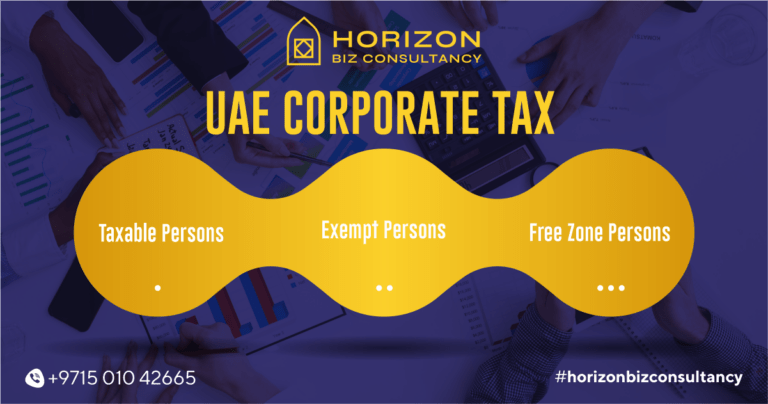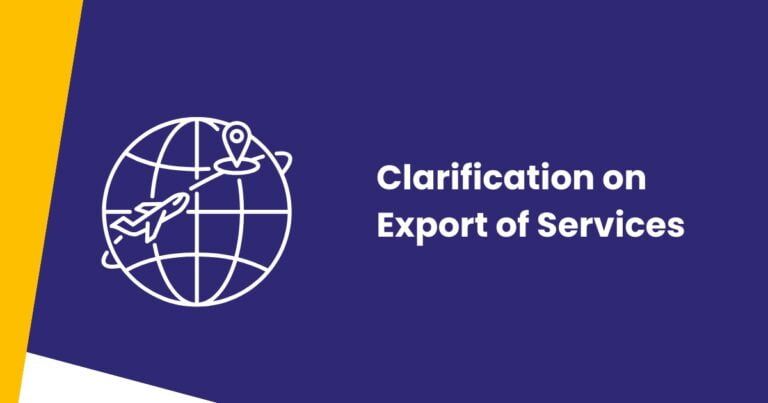The United Arab Emirates (UAE) has introduced a new corporate tax that will apply from June 1, 2023. This tax needs to be paid by most types and sizes of businesses operating in the UAE. In this blog post, we explain corporate tax in simple terms – who needs to pay it, how much needs to be paid, and who is exempt.
Who Needs to Pay Corporate Tax in the UAE?
The UAE corporate tax applies to all businesses and freelancers who carry out business activities in the UAE mainland. This includes:
- Companies and corporations
- Partnerships
- Branch offices
- Permanent establishments
- Other forms of commercial business
It does not matter whether these businesses are fully foreign-owned, partly foreign-owned, or fully UAE-owned. As long as they do business in the mainland UAE, they must pay corporate tax.
Some major exclusions are:
- Businesses involved only in extracting natural resources like oil and gas
- Businesses operating only in UAE free zones
- Businesses with income less than AED 375,000 in a year
- Businesses that are exempt
What Are the UAE Corporate Tax Rates?
The corporate tax rates in the UAE vary depending on the jurisdiction in which a company operates. Currently, there is no federal corporate tax regime in the UAE. However, certain emirates and free zones have implemented their own corporate tax regulations. Here’s an overview of the corporate tax rates in different regions of the UAE:
- UAE Mainland: Companies operating in the UAE mainland, which includes the emirates of Dubai, Abu Dhabi, Sharjah, Ajman, Umm Al Quwain, Ras Al Khaimah, and Fujairah, are generally not subject to corporate tax. However, companies engaged in specific industries, such as oil and gas, banking, and certain manufacturing activities, may be subject to different tax regimes or exemptions.
- UAE Free Zones: Many of the UAE’s free zones have implemented their own corporate tax regulations and rates. The corporate tax rates in free zones typically range from 0% to 20%, depending on the specific free zone and the nature of the business activity.
Here are the corporate tax rates in some of the major UAE free zones:
- Dubai Multi Commodities Centre (DMCC): 0% corporate tax
- Jebel Ali Free Zone (JAFZA): 0% corporate tax
- Dubai International Financial Centre (DIFC): 0% corporate tax
- Abu Dhabi Global Market (ADGM): 0% corporate tax
- Dubai Silicon Oasis (DSO): 0% corporate tax
- Sharjah Media City (SHAMS): 0% corporate tax
- Ras Al Khaimah Economic Zone (RAKEZ): 0% corporate tax
- Hamriyah Free Zone: 20% corporate tax
It’s important to note that while some free zones offer a 0% corporate tax rate, companies may still be subject to other fees and charges, such as trade license fees, visa fees, and administrative costs.
- Specific Industries: Companies operating in specific industries or sectors, such as oil and gas, banking, and certain manufacturing activities, may be subject to different tax regimes or exemptions, regardless of their location within the UAE.
Businesses Exempt From Paying Corporate Tax
Several types of businesses do not have to pay corporate tax in the UAE. The main categories exempt are:
- Real Estate Businesses
This includes owners and lessors of commercial and residential properties. Real estate activities are exempt to boost foreign investment in UAE property.
- Investment Funds
Various investment funds, asset management and trust companies do not have to pay corporate tax on trading activity income. This supports the UAE’s strategy to be a global investment hub.
- Qualified Start-ups
Early-stage start-ups focused on innovation and intellectual property development have a temporary tax holiday. This helps the UAE achieve its vision to be a start-up hub.
To qualify, these start-ups must meet conditions like being SMEs with less than AED 375,000 profit.
- Charitable Organizations
Entities like registered NGOs, societies and private foundations operating for social welfare do not have tax liability on income from non-commercial activities.
How Are Free Zone Companies Impacted?
Over 45,000 companies operate from various UAE free zones. Free zones offer incentives like 100% foreign ownership, no corporate tax, faster approvals and better infrastructure.
Companies solely operating in UAE free zones do not have to pay domestic corporate tax. They only pay nominal license renewal fees annually.
However, free zone companies undertaking certain activities on the UAE mainland may have limited tax liability. For instance, banks and insurers in major free zones will have to pay corporate tax on UAE onshore income.
Conclusion
In summary, the UAE corporate tax aims to build a more diversified, sustainable economy. All mainland entities must gear up for compliance, while free zones retain some key incentives. With advanced preparation, businesses can ensure a smooth transition into the new tax era.
FAQs
Taxable persons for corporate tax purposes in the UAE generally include companies and other legal entities operating in the UAE free zones that have implemented corporate tax regulations. However, the specific definition of a taxable person may vary across different free zones.
Yes, there are certain exemptions and exceptions to corporate tax in the UAE. For example, companies operating in the UAE mainland (outside free zones) are generally exempt from corporate tax, with some exceptions for specific industries like oil and gas, banking, and certain manufacturing activities.
Corporate tax rates in UAE free zones are typically determined by the free zone authorities based on factors such as the nature of the business activity, the industry sector, and the overall economic strategy of the free zone. Some free zones may offer lower or zero tax rates to attract specific types of businesses or investments.
Yes, the UAE has signed double taxation avoidance agreements with several countries to prevent companies from being taxed twice on the same income. These agreements help companies operating in UAE free zones avoid double taxation and promote cross-border trade and investment.





